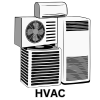Let’s go in detail about the Electronic Control Unit (ECU) in a car:

In this article:
1. Definition of ECU
An Electronic Control Unit (ECU) is a computer or microcontroller system in a vehicle that controls one or more electrical systems or subsystems.
- Sometimes called Engine Control Module (ECM) when specifically for engine management.
- Modern vehicles can have multiple ECUs for different functions: engine, transmission, ABS, airbags, infotainment, etc.
2. Purpose of the ECU
The ECU’s main role is to monitor, control, and optimize vehicle systems for performance, safety, and efficiency:
- Engine Management: Controls fuel injection, ignition timing, and idle speed.
- Emission Control: Adjusts air-fuel ratio to reduce harmful emissions.
- Safety Systems: Works with ABS, traction control, and airbags.
- Transmission Control: Optimizes gear shifts in automatic transmissions.
- Diagnostics: Detects faults and stores error codes for mechanics to read.
3. Components of an ECU
| Component | Function |
|---|---|
| Microprocessor / CPU | Processes input signals and executes control algorithms |
| Memory (ROM, RAM, EEPROM) | Stores software, calibration data, and diagnostic codes |
| Input Interfaces | Receives data from sensors (throttle, crankshaft, oxygen sensor, etc.) |
| Output Interfaces | Sends signals to actuators (fuel injectors, spark plugs, relays) |
| Communication Bus (CAN/LIN) | Exchanges data with other ECUs in the vehicle |
4. How an ECU Works
- Receives signals from sensors: e.g., engine speed, throttle position, oxygen level.
- Processes the data using programmed logic and control maps.
- Sends commands to actuators: e.g., adjust fuel injection, ignition timing, or idle speed.
- Monitors system performance continuously and stores error codes if a fault occurs.
Modern ECUs often communicate via the CAN bus with other ECUs to coordinate vehicle functions.
5. Types of ECUs in a Modern Vehicle
| ECU Type | Function |
|---|---|
| Engine Control Module (ECM) | Manages engine operation, fuel, and emissions |
| Transmission Control Module (TCM) | Controls automatic transmission shifts |
| Anti-lock Braking System (ABS) ECU | Manages wheel speed and braking pressure |
| Airbag ECU | Controls airbag deployment |
| Body Control Module (BCM) | Controls lights, doors, and other body electronics |
| Infotainment ECU | Manages audio, navigation, and connectivity |
| Electronic Stability Control (ESC) ECU | Enhances vehicle stability during turns/slippage |
6. Symptoms of a Faulty ECU
- Check Engine Light ON (MIL)
- Poor fuel efficiency or rough idling
- Engine misfire or stalling
- Transmission shifting issues
- Non-functional electrical components
- Failure to start in some cases
7. Advantages of ECU
- Precise control of engine and vehicle systems
- Improved fuel efficiency
- Lower emissions
- Integration with safety systems
- Diagnostic capabilities for faster repairs
✅ Summary
- ECU = Electronic Control Unit, the “brain” of the vehicle.
- Purpose: Controls engine, transmission, safety, and other subsystems.
- Components: Microprocessor, memory, input/output interfaces, communication bus.
- Functions: Receives sensor data, processes it, commands actuators, monitors performance.
- Modern cars have multiple ECUs, each dedicated to specific systems.
💡 Tip:
If your ECU fails, the vehicle may still run, but performance, fuel efficiency, and safety systems may be compromised. Always use specialized diagnostics tools to identify ECU issues.
FAQ Section:
Here are 10 frequently asked questions (FAQs) about an Electronic Control Unit (ECU) in a car:
- What is an Electronic Control Unit (ECU)?
An ECU is a computer that controls and manages various electronic systems in a vehicle, such as engine, transmission, and safety systems. - How does an ECU work?
It receives input from sensors, processes the data, and sends commands to actuators to optimize vehicle performance. - What are the types of ECUs in a car?
Common types include Engine Control Module (ECM), Transmission Control Module (TCM), ABS Control Module, and Body Control Module (BCM). - Why is an ECU important?
It ensures optimal engine performance, fuel efficiency, emission control, and overall vehicle safety. - Can an ECU fail?
Yes, ECUs can fail due to water damage, electrical faults, software corruption, or overheating. - How do I know if my ECU is malfunctioning?
Symptoms include engine misfires, poor fuel economy, warning lights on the dashboard, or difficulty starting the vehicle. - Can an ECU be reprogrammed?
Yes, ECUs can be updated or “tuned” with software to improve performance or adjust settings. - Does every car have an ECU?
Yes, all modern vehicles use at least one ECU, with more advanced cars having multiple ECUs for different systems. - Is ECU repair possible?
Some issues can be repaired, such as replacing faulty components or reprogramming the software; severe damage may require replacement. - Does the ECU affect fuel efficiency?
Yes, by controlling fuel injection, ignition timing, and other parameters, the ECU directly influences fuel consumption and emissions.
Other courses:



